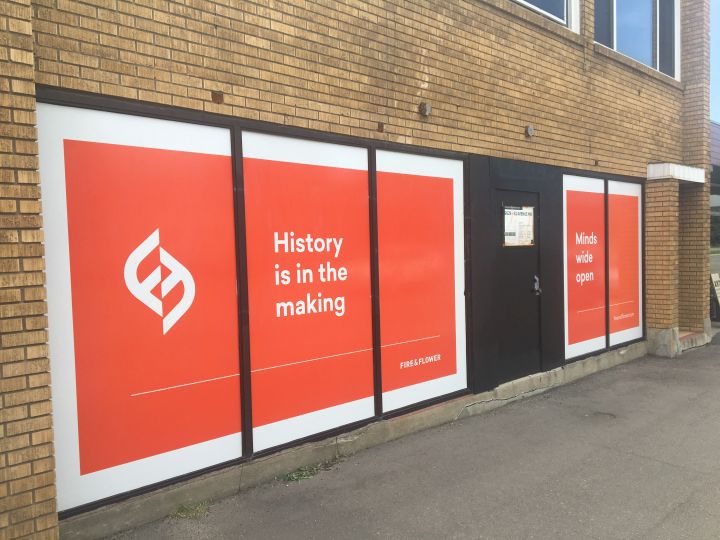Councillor Mike Nickel says he empathizes with the CEO of a multinational cannabis retailer based out of Edmonton after the business executive called Alberta’s capital “the most difficult to deal with” when talking about municipalities where his company has set up shop.

“I’ve heard it from across industries, be it manufacturers, be it people in the commercial side — retailers — it’s clear across the board, the same old, same old,” Nickel told Global News on Thursday.
“So that’s why we’ve kind of got to fix this thing and, are we business friendly or are we not? Are we open for business or are we not?
“I think a lot of people just jump the jurisdiction. It’s not just about taxes here, this is also about how friendly we are just to making businesses happen here in the city — and we’re not, so we can do better.”
READ MORE: Edmonton property taxes ‘so far out to lunch’ compared to other cities: businessman
“We chose Edmonton because of its proximity to our provincial regulator, the AGLC. We chose it because… it was open for business, but we find Edmonton in particular to be quite difficult to deal with,” he said.
“We know it’s a political process but we just wish there would be more leadership shown here. “
Listen below: Fire & Flower Trevor Fencott speaks to 630 CHED’s Ryan Jespersen on Thursday.
Fencott said his company — which operates or has licensed 23 cannabis retail stores in Alberta, Saskatchewan and Ontario — has found dealing with the City of Edmonton to be stressful on a number of fronts, including its lottery system for cannabis permits.
Watch below: Some videos about the cannabis industry in Edmonton.
“We were very much against the lottery, which is not a sensible way — in our opinion — to try to allocate anything,” he said. “We told them quite clearly that it would lead to — almost immediately — an unregulated black market in development permits, which it 100 per cent did.

Get weekly money news
“But, we were prepared to keep moving on and keep moving through the process.”
Fencott also said dealing with the city has been onerous in terms of zoning issues with its proposed Edmonton locations.
“The administration of Edmonton, in our opinion, [has] simply kind of run amok.. We’re not getting proper instructions from the elected officials here.”
In one case, Fire & Flower was unable to open a proposed location near the Mill Creek Ravine because it infringed on the minimum distance needed between a cannabis shop and a school by 80 centimetres.
“I understand… this is a new industry, and so it’s a bit of a political hot potato but, you know, at this point, you have to stand up and say, ‘Look, if you’re open for business, be open for all business, not just the businesses that you can pick and choose,'” Fencott said. “This is a huge growth opportunity for Canada and for Alberta, but also for Edmonton.”
Watch below: (From July 26, 2019) As Alberta’s UCP government looks at ways to cut red tape, some business leaders say the same thing needs to happen in the province’s two largest cities. Tom Vernon reports.

Nickel said he believes development officers need to do a better job of exercising discretion in cases like the Mill Creek location.
“Where’s the discretion for about this (stretches his arms to show the distance) amount of space to make a store happen? Come on,” he said. “Just make it happen.
“Here we have a business, a legitimate business now, trying to get started. And now Fire & Flower is an international, multinational [company] based here in Edmonton [and] it seems like red tape is killing them here in the city.”
Global News reached out to the city’s administration to ask for a response to Fencott’s concerns. In a reply, Fencott’s comments were not addressed.
The statement provided by administration provided background on the cannabis industry in the city and said that as of July 25, the city has issued over 200 development permits for cannabis retail sales since the product’s recreational use was legalized.
Nickel said while he believes administrators need to find a way to be more flexible when working with companies like Fire & Flower, like in the Mill Creek case, at the end of the day, council needs to address the concerns brought up by Fencott.
“Here we have a company that has basically said, ‘This is the hardest municipality in the country to deal with,’ even though we were the first municipality to introduce a cannabis bylaw… hoping to avoid these conflicts, hoping to make sure we were business-friendly to this industry,” he said.
“I’m afraid we haven’t succeeded in that,” he added. “Why does it have to come to this?
“Common sense has to kick in here at some point.”
Earlier this week, Alimentation Couche-Tard Inc. agreed to make a strategic investment in Fire & Flower Holdings Corp. of Edmonton, which will use the funds to develop its Hifyre digital retail platform and expand its network of cannabis retail stores.
READ MORE: Couche-Tard makes strategic cannabis move with large investment in Fire & Flower
The companies say Couche-Tard’s initial $25.9 million investment would initially give it rights to 9.9 per cent of Fire & Flower’s equity, with the potential to increase its stake to 50.1 per cent in return for a total of about $380 million in growth capital.
–With files from The Canadian Press





_848x480_1451730499878.jpg?w=1200&quality=70&strip=all)















Comments
Want to discuss? Please read our Commenting Policy first.